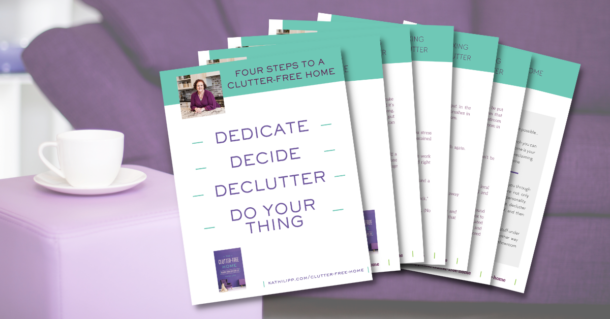Do you ever get frustrated with people who suggest a “quick fix” solution for losing weight?
• “If you want to lose weight, you have to stop eating sugar.”
• “I lost weight using products that will change your life. Buy my products now.”
• “All you need is more willpower.”
I hate it when this happens. As someone who has lost and gained large amounts of weight many times, I know from experience that losing weight isn’t a one-size-fits-all challenge.
Unsolicited advice, regardless of how well-intended it may be, usually comes across as criticism.
How do you feel when someone tries to “fix” you with uninvited input? If it’s not weight loss, maybe it’s telling you how to:
• Feed your children.
• Spend your money.
• Resolve relational challenges.
How do you respond when someone tries to fix you?
I used to have one of two extreme responses, depending on who was talking to me. Do either of these sound familiar?
• Do nothing and act like it’s not bothering you, even though it does, and then later (maybe many weeks later) you blow up.
• React defensively and aggressively in the moment. Then later you wish you hadn’t.
Learning to become honest with the right people at the right time has been empowering. It’s helped me to not hear food calling my name when I start feeling irritated.
Here are several response options to someone trying to fix you with their advice. Experiment to find what works best for you.
Respond in the moment
If you are talking with someone who tends to react in a positive manner when challenged, choose a simple response.
For example, “Thanks for caring. I’ve got that area of my life covered.”
Respond Later
If you are talking to someone who has a history of not listening to you and even becoming defensive, it’s helpful to have a conversation later.
Be sure to initiate the conversation another time; don’t let it go.
Respond Selectively
For some situations, I choose my battles, viewing it as their issue and not mine.
For example, with someone I will probably not see again, I often decide to let it go.
If it’s still bothering me, I either journal or talk to someone else about how I am feeling.
Choose Your Response
So, the next time someone offers unsolicited advice meant to fix you, remember: you can learn to choose your response.
These questions will help:
• Is there a history of the person responding positively when challenged? If so, respond honestly in the moment.
• Is there a history of the person responding defensively or aggressively in the moment when challenged? If so, choose a better time to have a conversation about the impact of their advice.
• Is this a relationship with no future? If so, journal or talk about it later with someone else.
One Small Win: Be intentional about practicing these responses. You’ll be glad that you did.
What’s your typical response when someone offers you unsolicited advice?

Mary Lou Caskey trains Christian coaches and communicators to influence hearts through the power of story. If you want to become a transformative storyteller, click here to connect with Mary Lou and get her free quiz, “Is It the Best Time to Share a Personal Story?”








Mary Lou, this is excellent advice. I love the idea of considering whether the person has a history of responding positively or negatively. It totally takes the anxiety out of the decision if you have a plan for each type of person.
I’m so glad that concept resonated with you Lyneta. Thanks so much for connecting.
Thank you for your helpful and practical insights, Mary Lou. You pointed out that sometimes it’s the other person’s issue. That’s an insight that will be helpful for me to remember.
I’m glad that’s a helpful reminder to you Jane, thanks for connecting.
It is so freeing to know we can choose our response. I really like your three options to help us evaluate the best response in each situation. Practicing making the decision of how to respond in each instance will grow me into more confidence in how God wants me to respond.
Thanks for sharing this. It’s so simple, but sometimes I forget.
Thanks so much Rhonda, yes we need each other for those reminders. Thanks for connecting.
Thank you for this great article Mary Lou. I’ve had some advice recently where somebody said to put my business on hold and consider getting a part time job. I didn’t ask for his advice and I told him that I know God has called me to be a Christian Life Coach and there are people that I know I can help and if I step away from it now, I will not be able to reach them. He doesn’t understand what I am doing so I told him nicely (as I could since I kind of was a little upset) that basically thanks for your advice and I know what I’m supposed to be doing and changed the subject quickly.
This is really great Amy. I’m glad that you could see that he doesn’t understand what you are doing. It sounds like a powerful response. Thanks for connecting.
I’ve been the recipient of some targeted comments, and they mainly came behind my back. It was a tough go. But I know these people won’t change and that’s who they are. I drove down the street the other day, and the Lord spoke to me through the Our Father. Forgive others as I have forgiven you. I reflected on that every day since. I’ve also realized how I’ve been the giver of ‘help’ when not asked for. I too need to listen more without trying to offer advice. My prayer is to react to others as Christ reacts to me, with grace, understanding and peace. Maybe the best question we can share with someone is “How can I help you?” And then let them tell you what they need or want. #ImAWorkInProgress 🙂
Lisa, that is wonderful that you can say what so many of us do (me included), give help when not asked. Great input, thank you.
Thank you so much for the opportunity to share this with others. I appreciate you Kathi and the entire team!